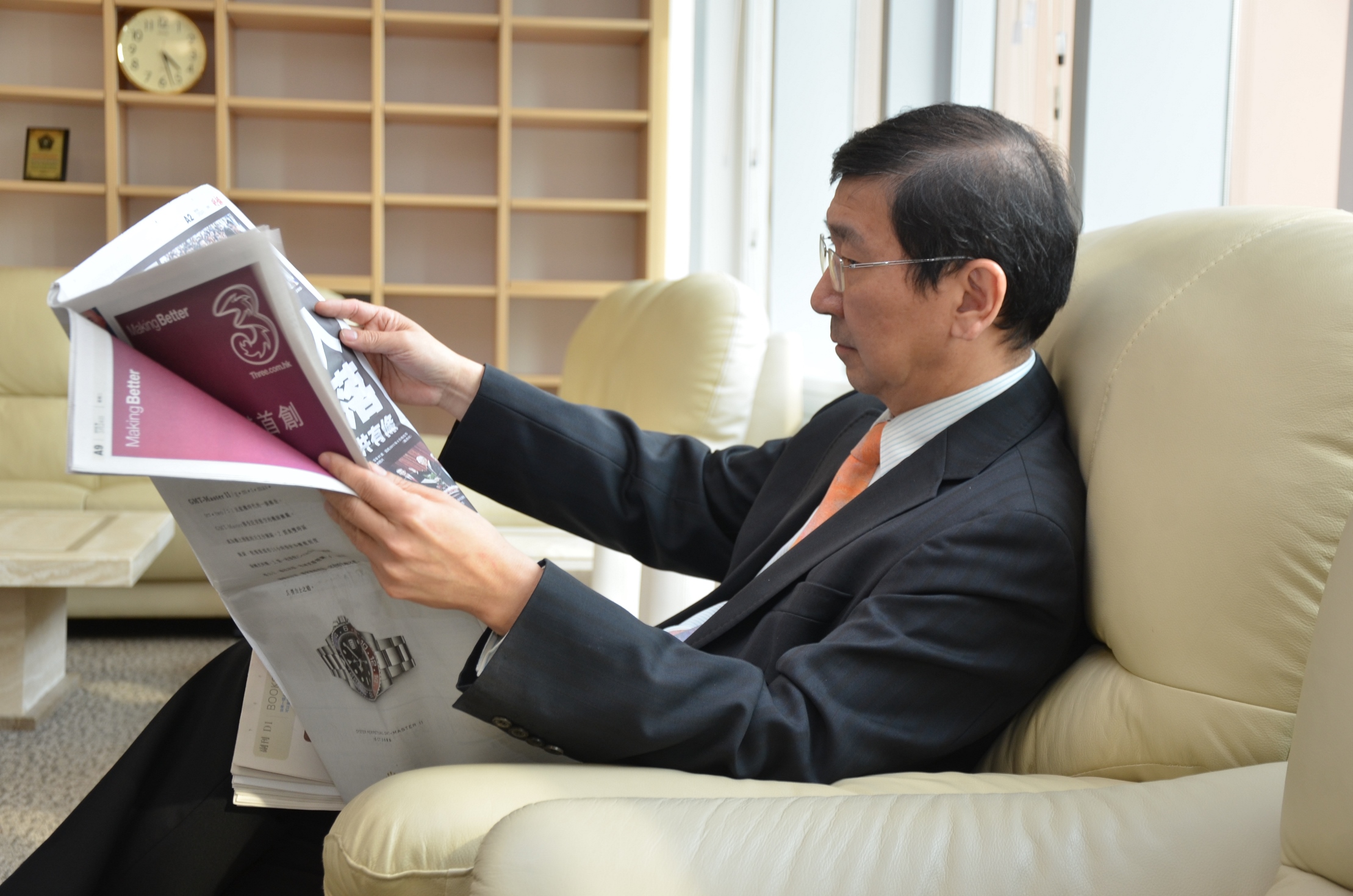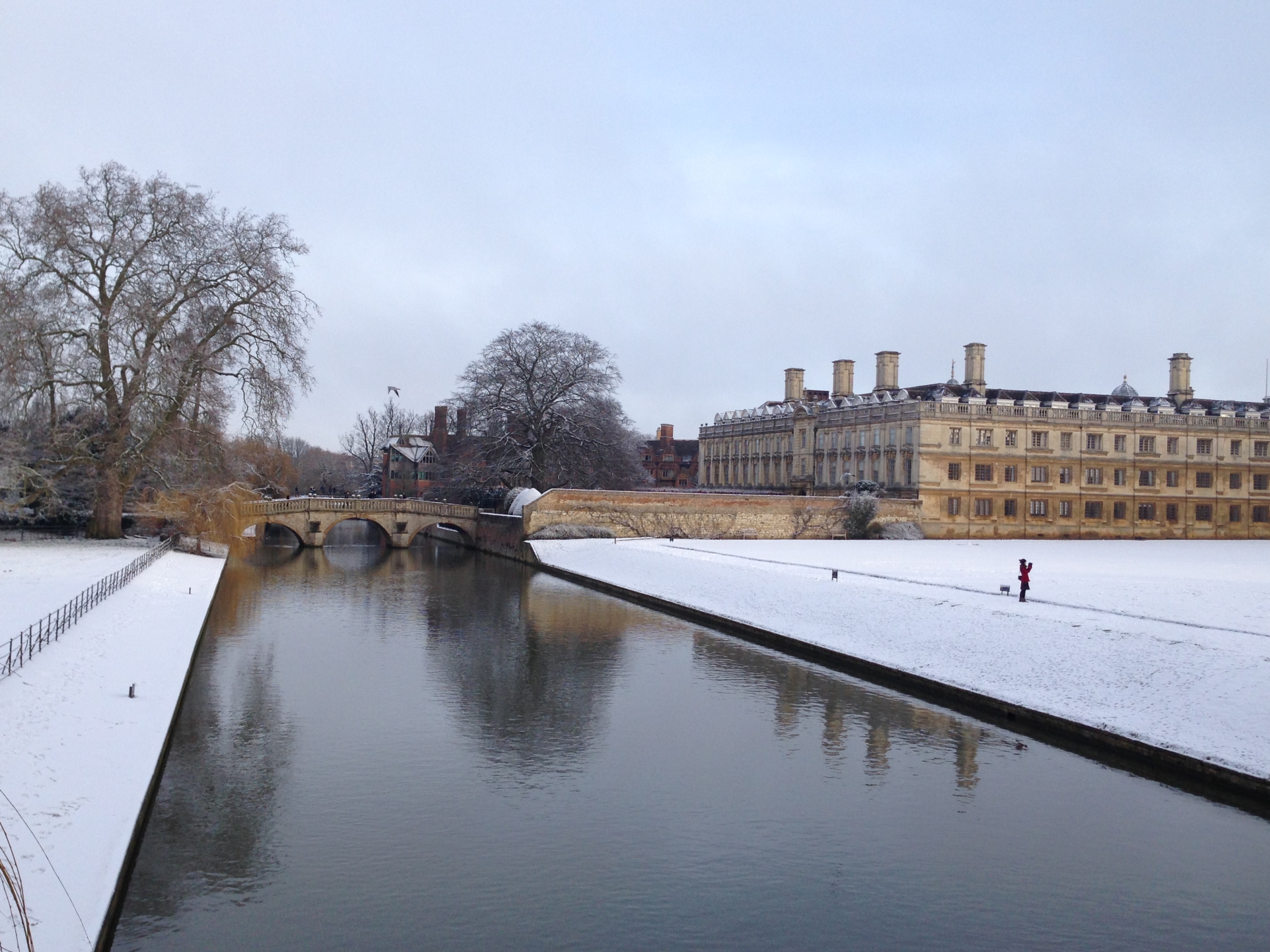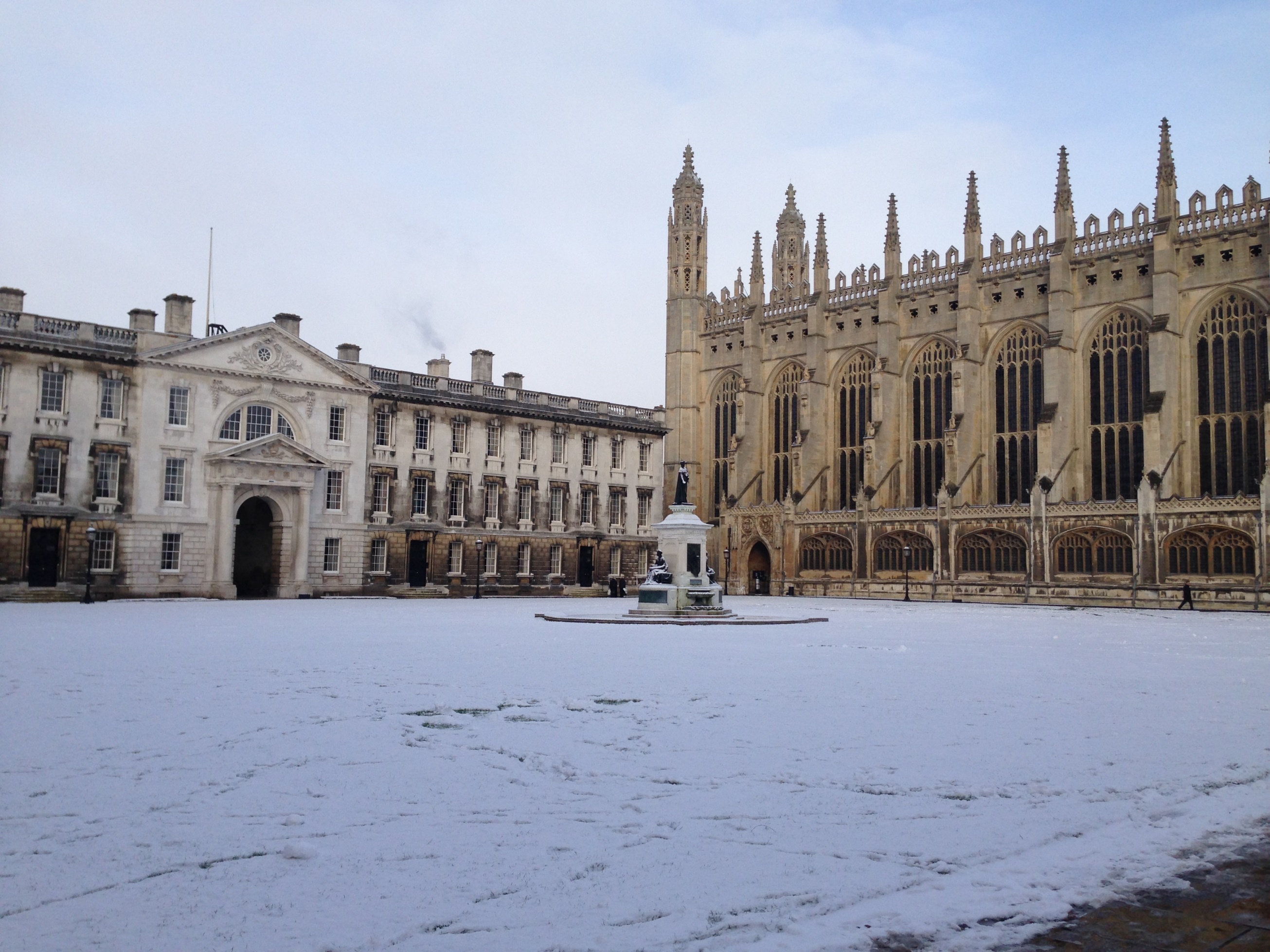PRESS RELEASES | MAR 17, 2015
Johannes: A Retrospect
After having served as Dean of the Faculty for 12 years, Professor Johannes Chan’s term came to an end on June 30, 2014. Professor Michael Wilkinson spoke to him about his thoughts in retrospect.
MW: Professor Michael Wilkinson
JC: Professor Johannes Chan
MW: I haven’t seen you for some time, Johannes. You look great!
JC: Indeed quite a number of friends and colleagues have said the same. I managed to lose 10 lbs of weight, probably due to less social dining and more exercises. I guess it speaks a lot about the heavy responsibility as Dean. It has been a very exciting 12 years and I have learned a lot; but I am very happy to get back to what attracted me to academia in the first place – scholarly writing and teaching (smile).
MW: I think you have been away from Hong Kong for most of the time since you stepped down. Tell us what you have done during your sabbatical leave.
JC: I was teaching constitutional law at the University of Pennsylvania as Bok Visiting International Professor in the Autumn term last year, and then spent another period of time this year at Cambridge University as their Herbert Smith Freehills Visiting Professor and Visiting Fellow of Gonville and Caius College. It was a nice experience to spend some time at two of the very top law schools in the world.
MW: Tell us more about U Penn. Autumn in Philadelphia must be lovely?
JC: It is, with cherry blossom and yellow and brown leaves everywhere. Philadelphia is a nice and walkable city, with many fine museums, arts and cultural events. It was a busy time as I taught an intensive course on constitutional law, sat in on another course on Human Rights in China, and gave a couple of guest seminars in various other courses, together with participating in several public lectures and panel discussions. It is a great law school. There are plenty of academic discussions, and I have come into contact with some very distinguished scholars. Colleagues and students are friendly. I also met our JD students studying there under our JD-LLM arrangement with Penn Law School. I have even discovered accidentally the links that U Penn shares with some important historical literary persons in the modern history of China.
MW: How about Cambridge?
JC: Cambridge is a charming city, especially when it is covered in snow! It offered me a tranquil environment to work on my research. There are also many interesting people and it is a great place for learning and reflection. Indeed, I completed several writing commitments there, and worked on the second edition of my book “The Law of the Hong Kong Constitution”, jointly edited with my colleague Professor Lim Chin Leng. I am also working on another book on justice, trying to look at some of the leading public law judgments to see how our public administration system works and how justice is or is not served.
MW: Do you see any major difference between our students and those at U Penn?
JC: US students are generally more proactive in asking questions and expressing their views, but, essentially, I don’t see a big difference between US students and our own. Both are serious and passionate about learning the law, and both work very hard. Indeed, our JD students who have been to U Penn to participate in the LLM by way of the double degree programme offered jointly by the two law schools have fared very well. As a graduate school, Penn tends to adopt a more inter-disciplinary approach to law. They also adopt a more interactive approach in class which means that thorough preparation for class is essential. One difference is that they start early. Most colleagues are in their offices by 8 am and classes start at 8:30 am. I suspect that many of our students would have difficulty complying!
MW: This must be one of the most satisfying aspects of being a teacher – to see your students doing well. But coming back to your Deanship, what would you say were your greatest achievements?
JC: I am rather hesitant to refer to “my achievements” as such, as I genuinely believe that anything achieved is the collective effort of all members of the Faculty. But looking back over the 12 years, I can be quite proud to say that our Faculty has progressed from a local teaching institution to a top law school in Asia and one of the eminent law schools in the world. People know us, and they want to come to HKU Law Faculty because of what we can offer to them in terms of the quality of our legal education and research. That is important, in my view.
I have already mentioned the double degree programme with U Penn. We have, of course, other double degree arrangements with the University of British Columbia, Peking University and Zurich University and are about to conclude a double LLB programme with University College London. In terms of research, UNSW, UCL and the National University of Singapore are our regular partners of academic collaboration.
Our work in public law, human rights, financial and security law are internationally known, and we have ventured into many cutting-edge areas such as ADR, Medical Ethics and Law, and Information Technology and Law. It is not difficult to appreciate that our Faculty has firmly established an international foothold and enjoys a very positive regional and international reputation.
I always believe that a law school is more than a teaching institution, especially one in Hong Kong at this period of time. We have grown with Hong Kong, and played our part in contributing to the development of the rule of law in China, such as through our MCL programme in training judges in the Mainland, and our long-time maritime shipping law programme with Dalian Maritime University in training both Mainland and Hong Kong lawyers in this rather unique field.
I should not omit to mention that the quality of students admitted to our LLB programme has been ranked among the very top in the University, and indeed in HK, for many years. I can confidently say that we are admitting the very best students to our law school.
MW: How about our new building the Cheng Yu Tung Tower?
JC: Ah, it has already become our home in every sense of the word. I am very grateful to the generosity and vision of our donor in contributing to quality legal education and upholding the rule of law in the territory. This beautifully designed building has greatly enhanced our teaching and learning experience, and is loved by virtually everyone here. The building has also provided the necessary hardware for our clinical legal education programme, in which our students are engaged in real cases and provide legal services to real clients under the supervision of qualified lawyers. The law is not just provision after provision in the books, but that it affects the life of real people. Students in the programme really feel about the law and want to use their knowledge to help and serve the community. This is one course which students volunteer to stay on even aftern they have passed!
MW: There must have been times as Dean which were less enjoyable?
JC: Haha, quite a lot indeed! In fact, the role of the Dean has changed dramatically in the past decade. It would not be an exaggeration to see the Dean as the CEO of the Faculty. It’s a very different job from that of an academic, and with all the strategic planning, human resource management, fundraising and institutional advancement, sometimes I did find it a little daunting. It requires a very different mind and skills set. Very often the Dean has to make unpopular and downright difficult decisions, but, as I’ve said before, I did learn a lot from such invaluable experience. I guess it was really just a case of rising to challenges and making the best out of them.
MW: Finally, what, in your opinion, makes a law school great?
JC: I would say the ability to attract and retain scholars of the highest calibre, and to admit and train excellent students. But this cannot be achieved without a lively and vibrant environment that respects, values and encourages diversity. A university should be the place where any issues can be freely debated and argued. It is only through open debates and arguments that advancement in knowledge can be made and the frontier of human understanding of the world can be expanded. A university must not shy away from controversies or from challenging established wisdom, without which we would still be at the stage of believing that the world is flat! Come to think of it, this is how the common law has developed and its frontier advanced – not by judges and lawyers always following established rules and principles, but, at appropriate moments, by questioning past wisdom and bringing about desirable advancement in the law. Indeed, every leading case is leading because it changes our thinking of what the law is and what it should be.
MW: This has been a most enjoyable chat. We look forward to your return from sabbatical and wish you all the best!
Back to News



